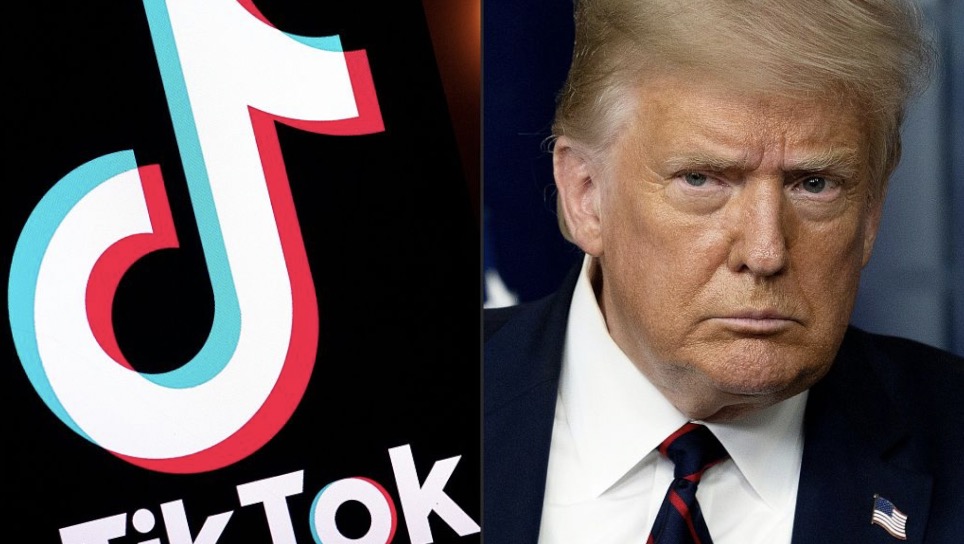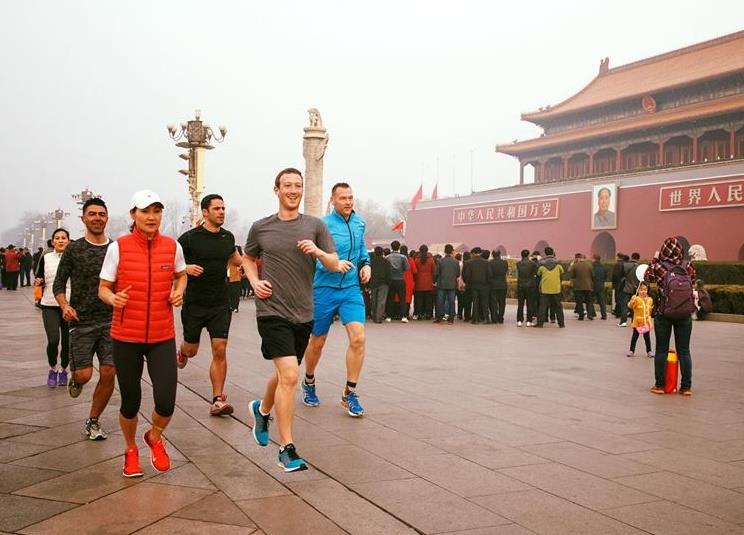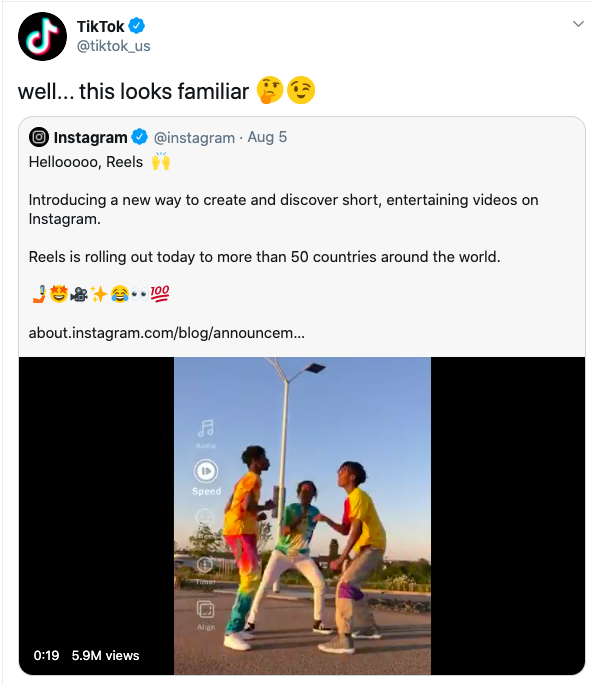02:15

Mark Zuckerberg may have never thought he can one day get a chance to play a role in the escalating U.S. sanctions drama on Chinese tech companies.
The billionaire was in the spotlight after terming the White House ban on TikTok as "a really bad long-term precedent." The CEO was asked to express his views on his company's interest in acquiring the most popular short-video app in the U.S. on an internal meeting last Thursday.
His remarks, which were made in the middle of a possible acquisition deal between TikTok's Chinese owner ByteDance and Microsoft, appear to be contradicting the attitudes that the company showed in the past.
Last month, TikTok's current CEO, Kevin Mayer, also a former executive at Disney, slammed Zuckerberg for using patriotism as a disguise to attack the China-oriented app and compete unfairly.
Read more:
TikTok CEO slams Facebook for dirty fight 'disguised as patriotism'
From memes to national security: What TikTok's U.S. ordeal means
Zuckerberg's love-and-hate 'China complex'
Over the years, the billionaire, build an image portraying him as an enormous Chinese fan. He flaunted Mandarin skills by delivering a speech in China's top university, showed his keen interest in Chinese science fiction on his social media accounts, jogged in front of Beijing's Tiananmen Square, leaving a strong impression on people that he has an affection for, or at least interest, in China.

Zuckerberg is jogging with his companions in Beijing. /Photo via Facebook
Zuckerberg is jogging with his companions in Beijing. /Photo via Facebook
But the once well-flaunted Chinese fan seems to have changed his stance towards the emerging economy and its competitors after he failed to enter the Chinese market.
According to Buzzfeed, Zuckerberg was in a serious deal with a Shanghai-based startup Muscial.ly, the one that later became the basis of TikTok's global empire. The tech giant spent much of the second half of 2016 trying to make that happen.
But in 2017, ByteDance closed the deal with Muscial.ly with a bid of around 800 million U.S. dollars.
In mid-2018, ByteDance has taken an even more aggressive marketing strategy targeting Facebook's U.S. camp by surging app-install ads on Facebook's ad network.
At the peak, it was responsible for nearly 22 percent of all such ads on U.S. Apple devices. According to data from the research firm Sensor Tower, the total downloads in iOS and Android app stores have surpassed 2.2 billion times globally.
ByteDance, an algorithm-backed firm with globalization ambitions
What does TikTok ban mean to Facebook?
The CEO has witnessed his Chinese-alike competitor growing up to be a tech mammoth.
"For Facebook, the ban has earned them a precious window to compete in the social media battleground," Jin Yechen, a media analyst, told CGTN.
"As things stand now, Facebook barely has a chance to defeat TikTok in the short-video field without government interventions," Jin added.
If it is too hard to compete with, it would be easier to resort to a government approach to attack a Chinese company, Wei Fangzhou, founder and CEO of Beluga Global, a consultancy working on overseas commercial development, expressed similar views in a recent interview with CGTN.

Read more: Facebook launches TikTok clone, Instagram Reels
The company released a new copycat lip-syncing feature– Reels in Instagram a few days ago. The answer to TikTok is their latest attempt to rival this competitor after a similar app – Lasso, in 2018, failed to gain popularity.
Zuckerberg did mention that a lot of people are out there saying that this helps Facebook, and "my reaction to that is only in the most narrow sense."
"Yes, they are a competitor this year, and this month, next month, maybe our engagement will go up. Maybe it will make Reels a little bit easier just to roll out. But you don't run a company for the next month or the next quarter."
In a recent U.S. congressional hearing, Zuckerberg is the only person who held a different opinion towards other three tech tycoons – CEOs of Apple, Amazon and Google on intellectual property thefts by China.
"I think it's well documented that the Chinese government steals technology from American companies," he said when grilled about the practice.